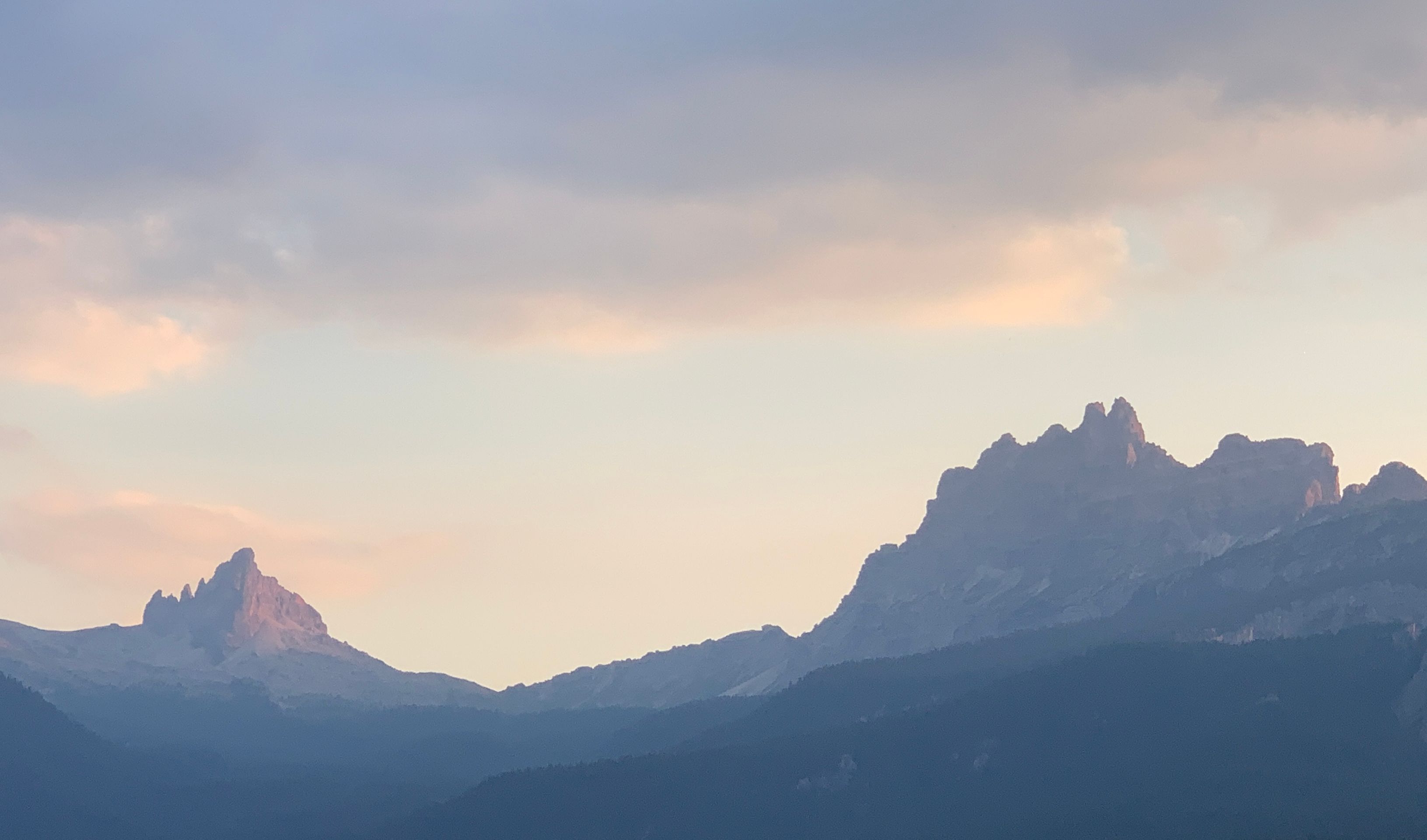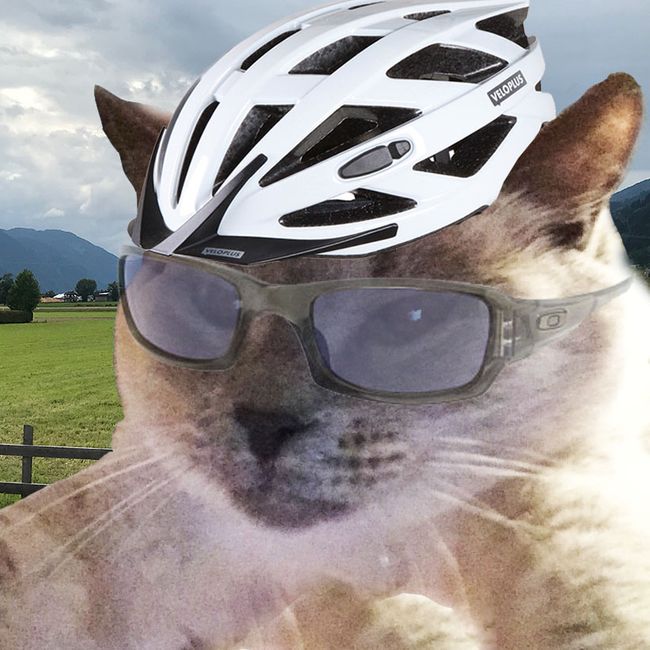
Lun@ix ontour
vakantio.de/lunatixontour
Machu Picchu & Montaña - the Sublime but also highly commercialized
प्रकाशित भइल बा: 22.10.2018
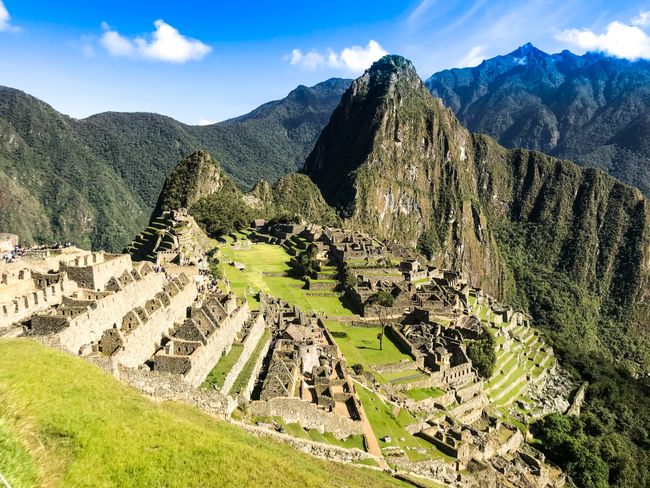
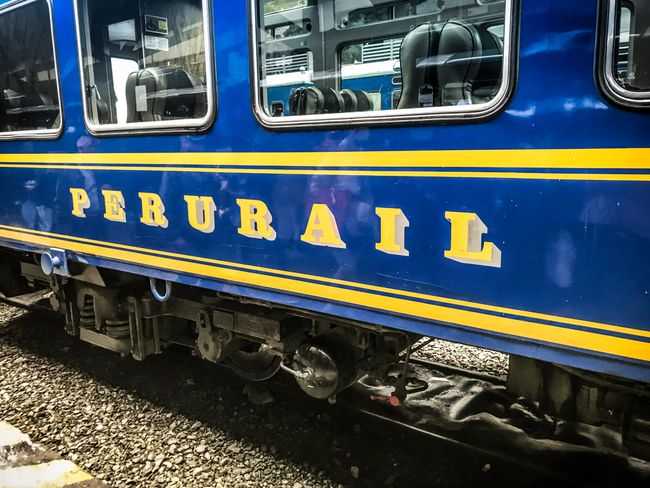
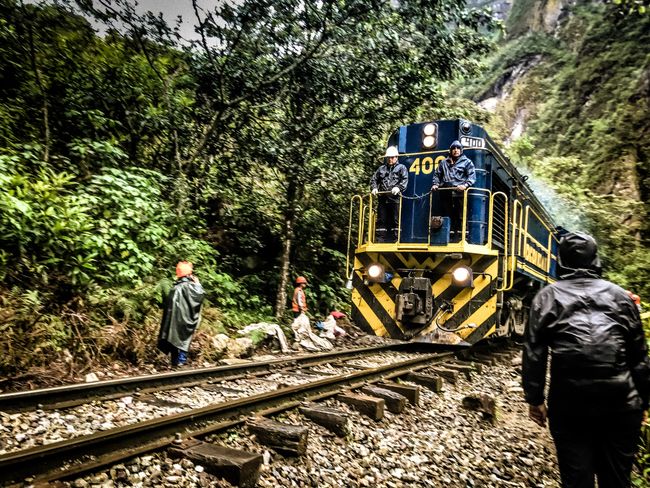
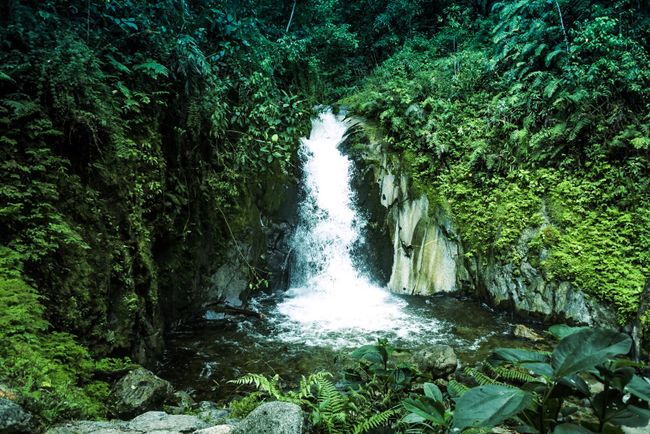
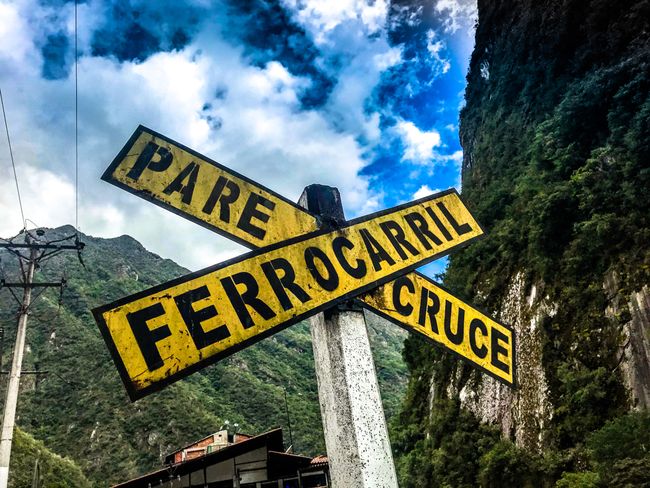
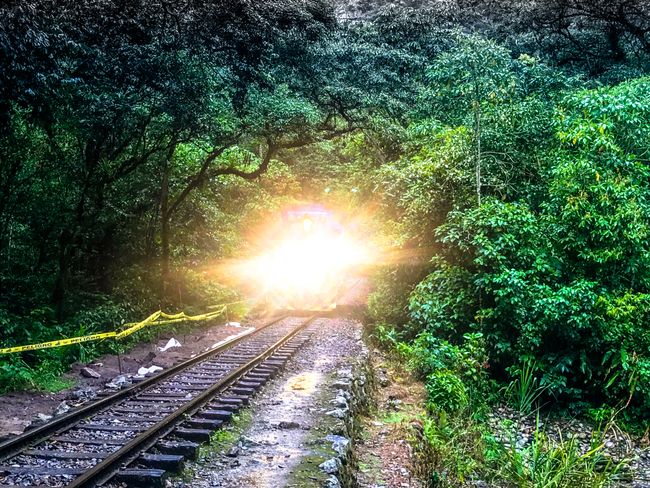
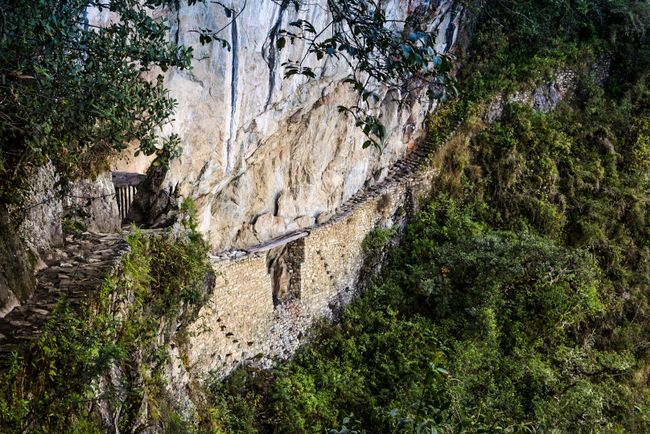
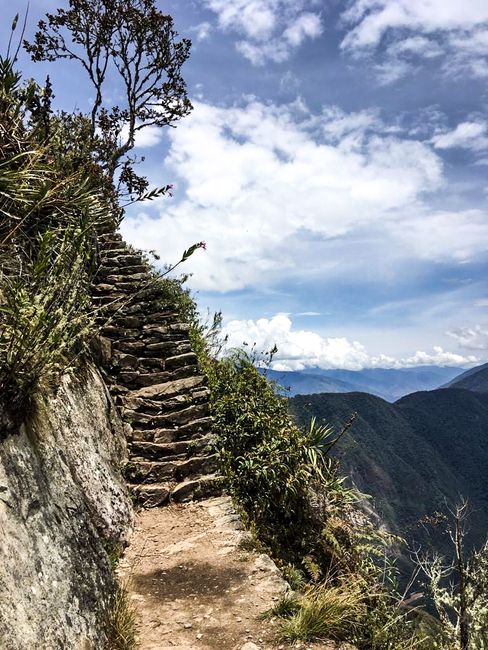
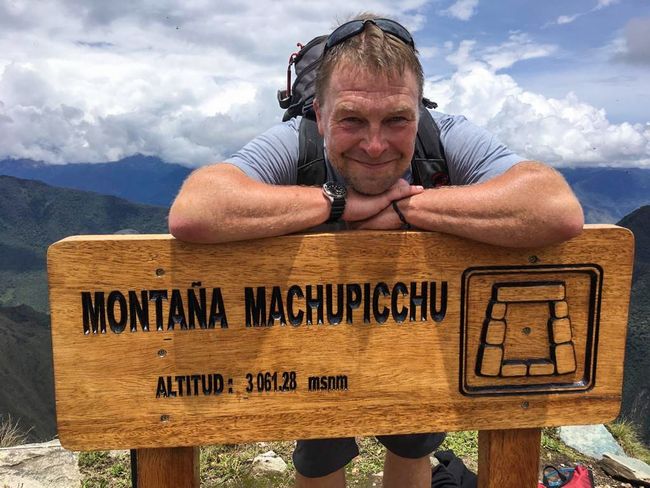
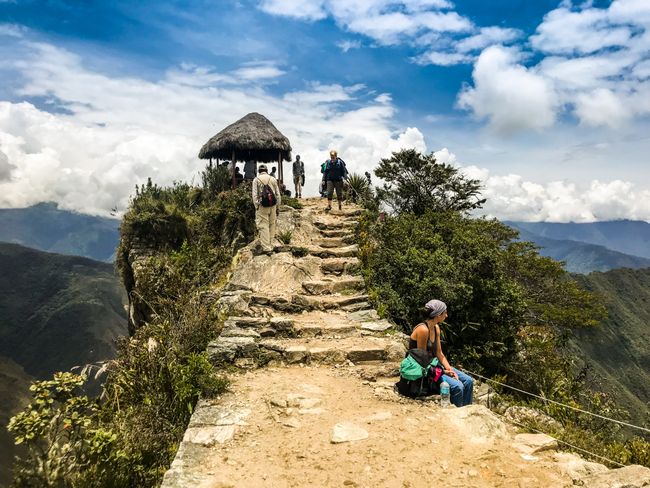
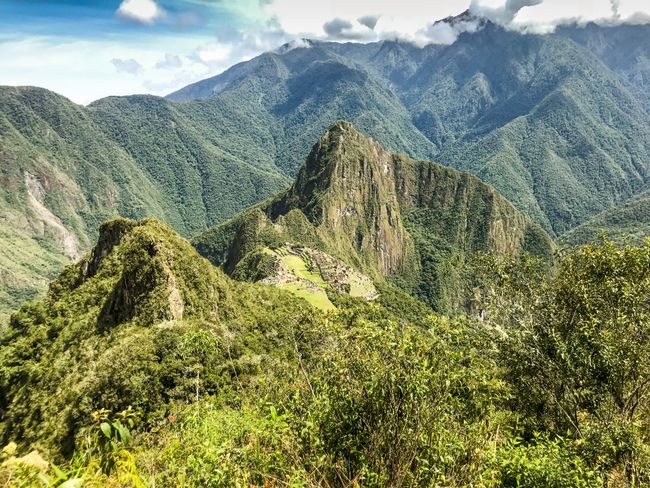
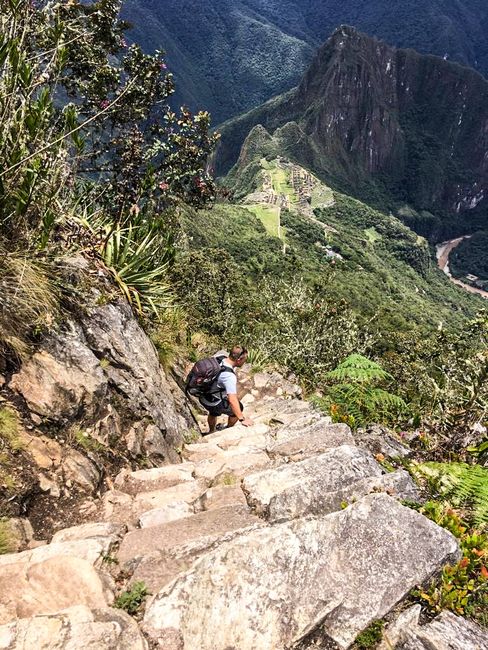
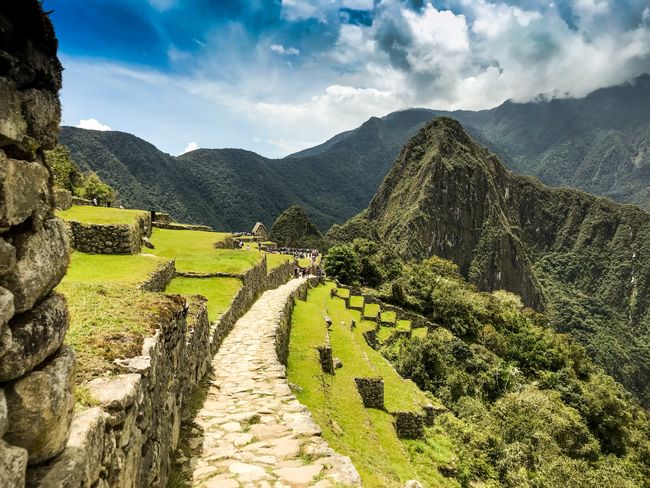
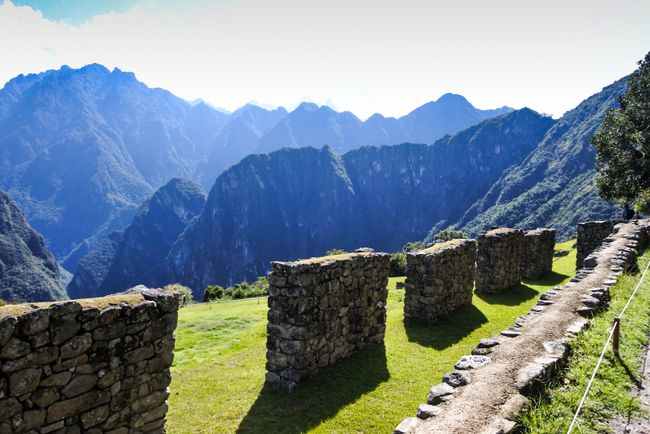
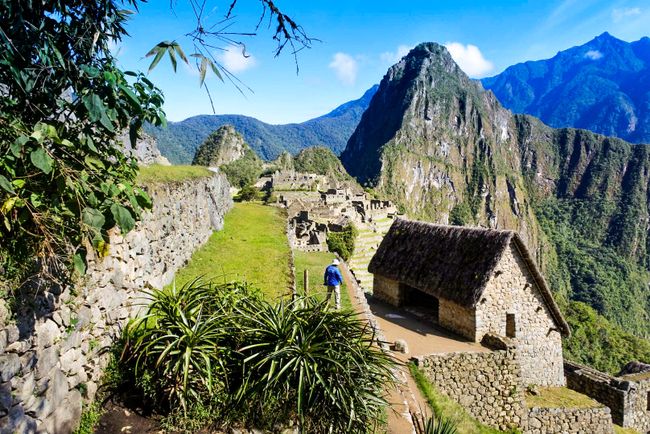
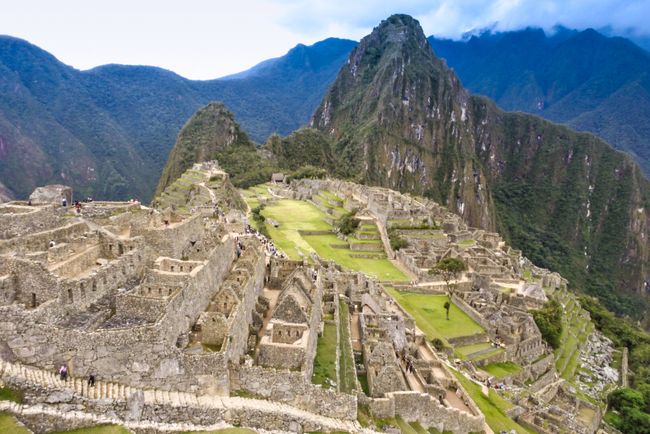
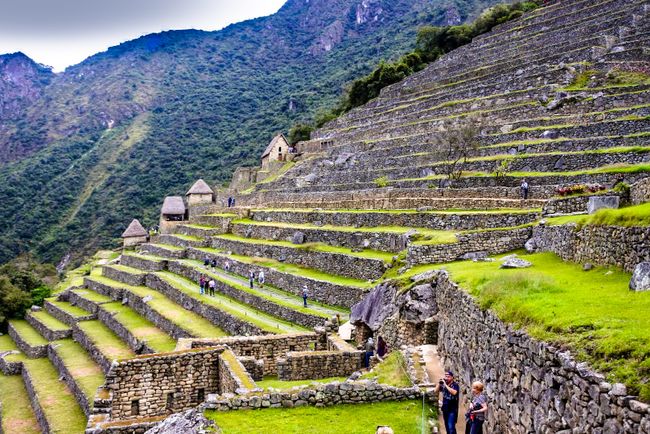
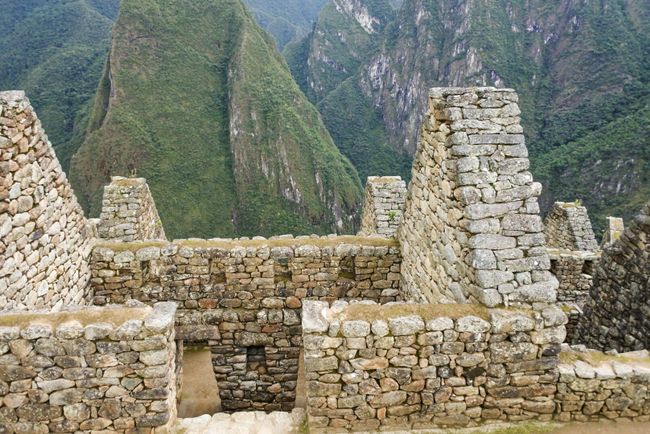
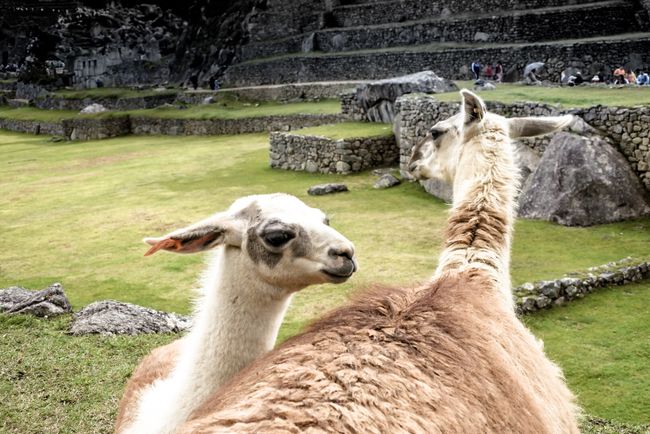
न्यूजलेटर के सब्सक्राइब करीं
After we had befriended Aguas Calientes, the big day had finally arrived, originally almost the main motive of this trip: the legendary sacred Inca city of Machu Picchu. The excitement was so great that we woke up a whole hour too early and only realized it when we were already cleaned up and dressed. But the extra hour would pay off.
First, we had to get the bus ticket up to the entrance, which was not easy, as the only ticket office in town is well hidden in a side street and very far away from the actual boarding point. Once we overcame this hurdle, we were able to board the front bus immediately without any waiting time, and it departed two minutes later.
The road up goes in several hairpin bends and overcomes the approximately 400 meters in altitude in just under 25 minutes. At numerous points, it can easily compete with the Yungas Road, as the slope effectively drops almost vertically. Arriving at the top, the next positive surprise: no queues at the entrance at all. Due to the unimaginable tourist crowds in recent years, which have also increasingly affected the site, the Peruvian authorities were forced to take action. The daily number of visitors is now limited. Depending on the source, I once read 2,500 or 3,500 visitors. Before, it apparently used to be up to 8,000! The tickets can be purchased online, and you always have to show your passport (no copy) for that (also for the train ride). We had also heard that you can only visit the site with a guide. However, I had already wondered how that would work, as many people are also traveling individually and therefore, about 1,000 guides would certainly be necessary. We therefore deliberately ignored the many offers in this regard before entering the site and never heard anything more in that direction...
The weather was absolutely splendid after the rain of the previous day, so we headed straight to the first viewpoint terrace. On the way, we heard a guide of his group say that the number of visitors today was "nothing" (there were already quite a few of them) and that it looked like a procession here during the high season. We were really lucky there.
When you arrive at the first terrace, you are already presented with the first classic view of the temple city, and it is absolutely overwhelming. It is simply incredible how such a building could be erected in this inhospitable terrain back then. I was very pleased to see that most of the lawn areas are fenced off, so that you don't have masses of people in your pictures. The lawn would probably not withstand that either. Of course, on the terraces, there were already the usual crowds of narcissists who had found a passable background for their unique portraits in this cultural site. Thanks to the early hour, we were still able to take photos without having to push the pose kings and queens off the steps.
We took a side path to the Inca Bridge, which leads about one kilometer around the mountainside. It is partly directly at the abyss, but it is very well secured with little walls and offers spectacular views into the Sacred Valley. Probably the fact that it requires some physical activity and offers only a few suitable places for selfies ensured that we were practically alone there.
But we had decided on a little more physical activity in advance and booked a hike in addition to the entrance. From the city of Machu Picchu, there are two options: the Huayna Picchu (that's the mountain directly behind the site, which is actually visible in all the pictures) and the Machu Picchu Montaña, from which you have the classic panorama from a great height. Due to the rush, these treks are also limited to 250 people per day. Huayna is the more sought-after one because it offers more action. In the upper part, it runs almost vertically uphill on the stairs of the temple complex. Tickets are usually sold out six months in advance. So, we tried Montaña. The track is twice as long, one way has 2,585 steps and covers an elevation difference of more than 600 meters. Duration: 1½ hours. We started it shortly before 9:30 am, and it was nice to see how the wheat was separated from the chaff. Suddenly, it was a different kind of people, and we had a few funny and likable encounters on the way up. The ascent was extremely strenuous and really steep, and the stairs, which were sometimes 40cm high, didn't necessarily help either. I passed the 2-3 exposed spots cleanly and without getting scared, thanks to the still prevailing feeling of victory from the Yungas Road, and after the Bolivian altitude training, the altitude was almost a breeze (Machu Picchu is located at only 2,400 meters above sea level). The reward was a unique panoramic view from the summit. The temple complex is practically located 600m directly below you. As more and more clouds rolled in, we kept our stay on the summit very short and started the return journey immediately, which we managed in just under an hour. Knees and ankles noticeably worn out. As soon as we reached the bottom, it started to thunder heavily. We got really lucky there. The thunderstorm, which raged in the deep surrounding canyons, slowly passed by, and we only caught a little rain.
So, we strolled along the circular path through the site, which was not always easy, as we were now in the midst of those posing... We cuddled a few alpacas and then decided that we had seen enough. Due to the rain, a few other people seemed to have the same idea, and the queue for the shuttle buses was long, but thanks to the good organization in this area, it took no more than fifteen minutes.
Back in Aguas Calientes, I was able to take a long shower in a spa for a few soles, and then finally came what I had constantly had in mind during the endless climb: an ice-cold Peruvian wheat beer. After we had also thrown two Pisco Sours down our throats - Bettina is slowly developing an addiction to them - it was already time to board the highly popular tourist train. This takes you - of course, once again backwards - for an exorbitant USD 65 only to Ollantaytambo at the entrance of the Sacred Valley, where there is naturally no bus connection to Cusco. So, we shared a taxi with a young couple from Lima. I particularly liked the playlist of the very young driver. I was not aware that there is a Spanish version of Major Tom.
Conclusion: Machu Picchu is beautiful, impressive, overwhelming. Everything around it is a catastrophe. Completely over-commercialized and just a tear-down. At least part of the money that inevitably has to be generated is invested in the maintenance of the site itself. The rest of the infrastructure, including the access road, is by no means at the same price level. We did not see a single toilet on the entire site, and garbage bins are scarce! They wanted additional money for the toilets at the main entrance, and this with an entrance fee of USD 70 per person. Due to the low season, the crowds were still manageable. If we should ever be in Peru again, we will gladly ignore Machu Picchu.
न्यूजलेटर के सब्सक्राइब करीं
जबाब (1)
Esther
Deine Fotos werden immer besser! Ich reise mit, ohne Touristenmasse! 😀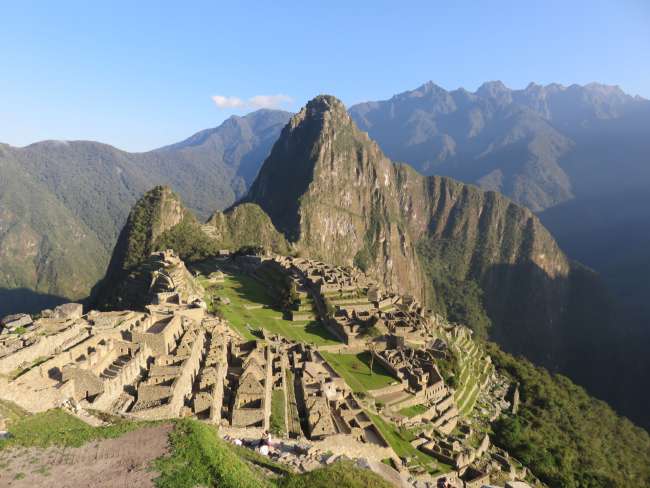
यात्रा के रिपोर्ट पेरू के ह बा।
